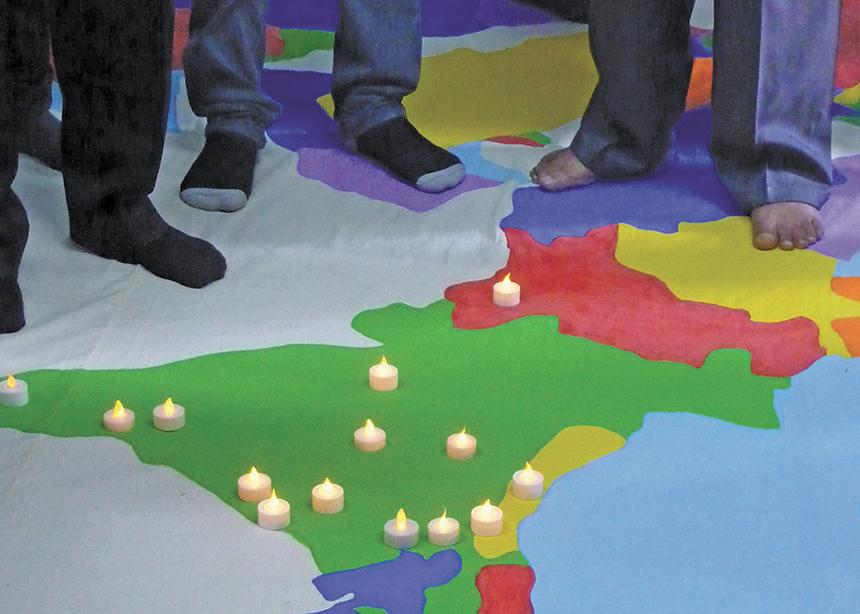People who are involved in service are typically practical, caring people; in other words, people of action. Of course the motivation for doing service is to follow Jesus and his teaching, to reach out to the weak, to the orphans and widows, and so on, according to Jeremiah 22:3 and James 1:27.
People who have a heart for evangelism may be called people of proclamation. They are concerned with pointing the way to Jesus. They follow the command to go into the world, teach and make disciples.
When accused of not caring about peoples’ souls, the first group might say, “But you have to feed an empty stomach first before giving spiritual nutrition.” The others might reply, “What good is it to feed people and yet do nothing for their lost souls?”
I know this description is oversimplified and polarizing, yet it holds some truth, based on my experience.
A tension
In the past, I sensed a tension between these two groups: the people of proclamation and the people of action. Both would claim their mission to be holistic. Sometimes conflicts developed. Often there was a lot of judgement passed.
When we established the Global Anabaptist Service Network within Mennonite World Conference (MWC), there was much discussion regarding the commission in which it should be hosted: Mission or Deacons. The arguments for one or the other reflected this tension.
It was decided to host it in the Mission Commission, a decision supported by the desire to overcome the gap between proclamation and service, word and deed.
I was not very happy. As part of the coordinating committee of the Network, I was named as a specialist in the Mission Commission. I do not feel that I am a missionary. I am a servant. Now I had to identify with missions.
A transformation
I was a little lost at first. But over time, I realized that a change was taking place in me. I began to see that my gifts as a servant are as valuable as the gifts of others who are church planters, evangelists and teachers.
God wants all of us in his mission. Only together are we complete.
Since then, the Network has met twice. We had joint meetings with the Global Mission Fellowship, at which we shared stories and teachings with the two groups together, and we also had separate sessions.
Particularly as the two groups met separately, I could sense that we still need the Spirit to teach us that together we are called to work in God’s mission according to our gifts, convictions and views.
Empowered by God’s breath (both “spirit” and “breath” are translations for the Hebrew word ruach), we will see change and see God at work.
During the meetings in Kenya back in April, one sign of that unity for me was the prayer map. Members of the Network and the Fellowship were invited to take time to identify a country, place a candle on that spot and pray for that country, for its people or for someone we knew there.
During this time of silent prayer around that large map, it was obvious that we are one in the Spirit.
Barbara Hege-Galle is a member of the MWC’s Mission Commission; she served with Christliche Dienste for 32 years and lives in Bammental, Germany, where she serves the local church. The Mission Commission is one of four MWC commissions serving the global community of Anabaptist-related churches; the others are Deacons, Faith and Life, and Peace.



Add new comment
Canadian Mennonite invites comments and encourages constructive discussion about our content. Actual full names (first and last) are required. Comments are moderated and may be edited. They will not appear online until approved and will be posted during business hours. Some comments may be reproduced in print.